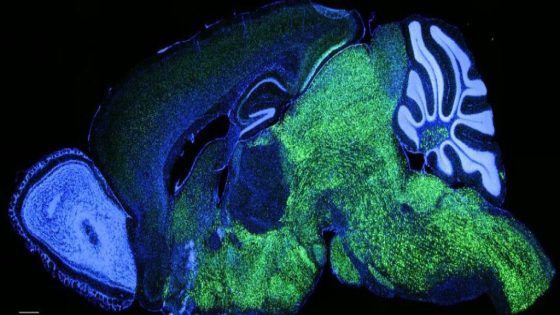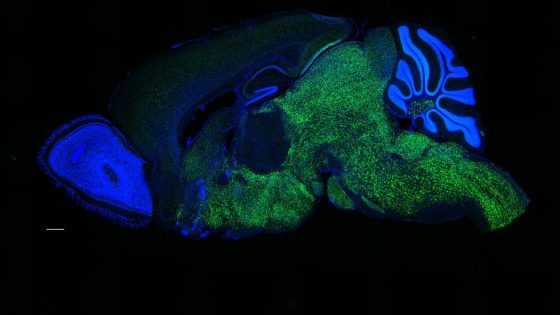A groundbreaking study reveals that a newly identified human ‘language gene’ can alter the way mice communicate. This gene, unique to humans, may shed light on the origins of spoken language and our evolutionary journey. How did a simple change in DNA lead to such profound implications for communication?
- New gene affects mouse vocalizations.
- Human variant unique among mammals.
- Evolutionary significance for spoken language.
- Changes observed in RNA splicing.
- Linked to psychiatric disorders in humans.
- Study published in Nature Communications.
Published on February 19, 2025, this research opens new avenues in understanding human language development. Could this discovery redefine how we view our connection to other species?
New Insights into the Human Language Gene and Its Impact on Communication
What if a single gene could change how a species communicates? The recent discovery of a human ‘language gene’ offers just that. Researchers at Rockefeller University and Cold Spring Harbor Laboratory have found that when this gene is introduced into mice, their vocalizations change significantly. This raises intriguing questions about the evolution of language in humans.
Exploring the Unique Human ‘Language Gene’ and Its Evolutionary Significance
The human ‘language gene,’ identified in this study, is distinct from those found in Neanderthals and Denisovans. This suggests it evolved relatively recently in human history. Here are some key points about this gene:
- It is a variant of a gene that affects vocalization patterns in mice.
- Only six out of over 650,000 human DNA sequences lacked this variant.
- The gene is linked to complex vocal behaviors and social interactions.
- Changes in vocalization may have played a role in human evolutionary success.
The Role of the Gene in Vocalization Changes in Mice
When researchers introduced the human variant of this gene into mice, they observed notable changes in their squeaks. The modified mice produced higher-frequency sounds, indicating a potential shift in social communication. This discovery suggests that even small genetic changes can have significant effects on behavior.
Understanding the Genetic Mechanisms Behind Language Development
This ‘language gene’ acts as a master regulator, influencing over 90% of other human genes during development. Its role in shaping vocal behavior and communication is just beginning to be understood. Researchers are eager to uncover how this gene affects brain development and function.
Implications for Human Evolution and Future Research
The findings from this study suggest that the evolution of the human variant of this gene may have conferred advantages in vocal communication, ultimately aiding in the survival and expansion of our species. Future research could explore the broader implications of these genetic changes on human cognition and social structures.
In conclusion, this research not only enhances our understanding of human language origins but also invites further exploration into the genetic factors that shape our communication abilities. As we learn more, we may uncover the intricate links between genetics, language, and what it means to be human.

































